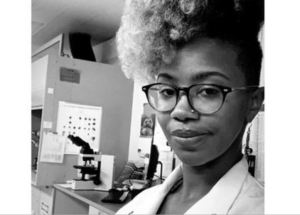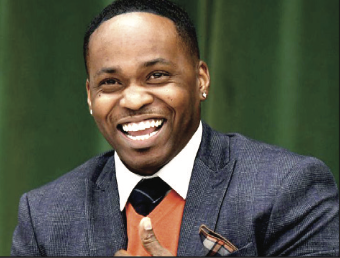
By Mylika Scatliffe,
AFRO Women’s Health Writer
Oh, to be young, gifted, Black, unafraid and following your dreams and passions. Alicia Hynson is all of the above. She’s been all over the country and beyond as a traveling health professional, working behind the scenes in the lab.
Do you ever wonder where all the different color tubes go when you have bloodwork done? Or what the colors mean? The purple are for red and white blood cells and platelets. The green, gold, and red ones are for things like liver function, cardiac enzymes, glucose and electrolytes. People like Hynson are working at hospital labs and clinics, analyzing them and figuring out how your body’s working.
Hynson is a traveling lab scientist. She spends, on average, 13 weeks at a time in hospital labs in remote locations around the United States and overseas. She initially majored in biology at Morgan State University in Baltimore, with her sights on medical school. She eventually realized she was not interested in the time commitment and expense of medical school. At the advice of her mentors, she considered how gaining lab experience would be the quicker path to employment and graduated from Morgan with a bachelor’s in medical technology.

“I chose lab science because I was fascinated with how body systems work,” Hynson said. She’s the person in the lab analyzing your red or white blood cell count, if you’re anemic, or if you’ve tested positive for coronavirus. The lab science field is currently aging out. With most lab scientists currently in their 40s and 50s, Hynson worries about the future of the field. She wants young Black people to consider lab science opportunities, especially the perks of travel health care. While Hynson has a degree, one can enter the field with an associate degree or even certification. Traveling as a lab scientist offers a variety of experiences and opportunities. Hynson has worked mostly in remote rural areas around the United States and overseas including Alaska, Vermont, South Dakota, Massachusetts, Iowa, and the West African nation of Mali. “It’s the best of several worlds. I get to travel, gain professional experience and change environments every few months. There are perks such as a housing allowance and I can tailor the assignments I accept to my specific requirements,” she said.
Not having a singular passion, Hynson’s also always wanted to play a part in birth work. She’s been a doula since June 2018. A doula supports a birthing person by offering encouragement, support and advocacy. It doesn’t end in the delivery suite; doulas also offer postnatal support ranging from accompanying parents to postnatal appointments to doing laundry and holding a newborn so a new mother can get some sleep or a shower. “My proudest accomplishment to date is piloting a doula program in Bethel, Alaska,” recalled Hynson. Native women in remote Alaskan villages have to travel alone by small aircraft to larger hospitals like the one in Bethel to give birth because Medicare will only pay to transport the laboring mother. A doctor has to sign for her to be escorted by her husband or partner. While on a lab assignment in Bethel, Hynson noticed a young laboring woman, walking down a hall alone. She was 19 years old and having her first baby. Hynson volunteered her support as a doula. That young mother would be the first of several native Alaskan women she voluntarily supported during that lab assignment. She instituted a doula program for women at the Bethel hospital. “I bet none of the doctors and nurses at these hospitals had to labor and give birth alone, why should their patients have to?” asked Hynson.
While holding the leg of a laboring mother in one hand, and a phone in the other so her husband could see their baby being born in Bethel, Hynson felt she was called to do more. Today, she’s in midwifery school, ready to further her passion for birth work. The next stop is Houston, Texas where she’ll train at a birth center.

Midwifery is different from being a doula, the main difference being midwives are trained health care professionals, while doulas are not. Midwives can deliver babies, complete well-woman and gynecological exams, make fertility referrals and more. Black midwives can make a huge difference for Black women and other women of color, particularly since they often feel they aren’t heard by medical professionals. “There is a renewed interest in Black wellness and holistic living,” said Hynson. She wants to encourage breastfeeding among Black women so it’s no longer uncommon. Fed babies are best of course, and everyone can’t breastfeed, but I want Black women that are hesitant to just try it. It’s what your body is meant to do.”
Hynson said she will always use her training as a lab scientist, even as her purpose and passions evolve. Looking forward to her future as a midwife, she stated, “I don’t ever want a woman to worry about being a statistic while in my care.”
Help us Continue to tell OUR Story and join the AFRO family as a member – subscribers are now members! Join here!
The post Alicia Hynson prepares to go from the lab to the delivery room appeared first on AFRO American Newspapers .











